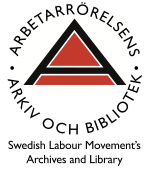Seminar with Eileen Boris, Hull Professor and Chair Department of Feminist Studies, Professor of History, Black Studies, and Global Studies, University of California, Santa Barbara
In 1951, the International Labor Organization passed Convention 100, ”Equal Remuneration for Men and Women Workers for Work of Equal Value.” At the center of its deliberations was the Director of the U.S. Women’s Bureau, Frieda Miller, who was the U.S. government representative to the committee that drafted the convention and served as its leader.
Since the end of the war, Miller actively had supported legislation within the US on equal pay for work of comparable value, a form of measurement that stemmed from “rate for the job” analysis deployed during the war. Miller used the US experience to craft the ILO convention and the ILO victory to push state labor commissioners to enact equal pay legislation and to keep the issue alive before Congress.
This inter exchange between the local, national, and global illuminates not only the transnational forging of rights but complicates our understanding of the passage of the equal pay act in 1963. A half-century later, it is time to look back on the making of equal pay as part of a multiscale strategy in the making of labor standards – a living legacy for the present.
Contact: Silke Neunsinger, silke.neunsinger [at] arbark.se
Venue: Arbetarrörelsens arkiv och bibliotek, Elektronvägen 2, 141 49 Huddinge

